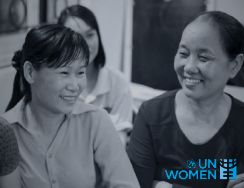Cambodia
| Date of Accession/ Ratification: | 17 Oct 1980 (signed); 15 October 1992 (acceded) |
| Reservations: | None |
| Optional Protocol: | Signed 11 Nov. 2001, Ratified 13 October 2010 |
| Reporting Status: | - Combined initial, 2nd and 3rd reports examined at 34th Session, January 2006 - Combined 4th, and 5th report examined at 56th session, 2013 - Next report due 1st October 2017 |
| Shadow reports | Joint Coalition Shadow Report for the CEDAW Committee, submitted by The NGO Committee on CEDAW and the Cambodian Committee of Women (CAMBOW) |
| Concluding Observations | Concluding observations from 56th session |
| Follow-up reports | Due 18 October 2015 |
| Coordinating Agency for CEDAW implementation: | Ministry of Women’s Affairs; Cambodia National Council for Women (CNCW); Sustainable Economic Development for Cambodia (SEDECA); The National Committee for Sub-National Democratic Development (NCDD) Secretariat, Ministry of Interior; Gender Mainstreaming Action Group (GMAG) of Ministry of Interior, The Royal Government of Cambodia; Khmer Youth Association. |
Cambodia is a country emerging from conflict and continues to struggle in overcoming this with measures advancing human rights. It is ranked 138 out of 187 countries and territories on the Human Development Index, and falls below average for countries in the medium human development group. As of 2013, 11.6 percent of adult women have reached a secondary or higher level of education compared to 20.6 percent of men; and 250 women of 100,000 die from pregnancy related causes.
| Adopted legislation | Ratified international human rights treaties |
|
|
Figure 1 Legislative measures and updates on the ratification status of international
human rights treaties in line with their CEDAW commitments
Areas of concern continue to persist in Cambodia, including issues of poverty, economic inequality, and limited access to justice and legal aid. There is a continuing need to strengthen national machineries in advancing women’s rights and mainstreaming gender, eliminating violence against women, abolishing sexual exploitation and human trafficking, and improving women’s political participation. Motions to prosecute offenders of women victims to violence are impeded due to the negative attitudes of law enforcers and judicial officers, while women are deterred from reporting abuse due to the high cost of attaining medical certificates to document sexual assault or rape.
| Multidimensional Poverty Index Rank – MPI – (of 104 countries) – ‘head count’ (%) | From 2010 survey : 45.9 |
| Gender Inequality Index Rank – GII – (of 148 countries) | In 2012: 96 |
| Social Institutions and Gender Index – SIGI | In 2009: 27 (of 102 countries) In 2012: 13 (of 86 countries) |
Women continue to face low-wage paying jobs, while domestic and migrant women continue to work within poor conditions. Although there has been legislation addressing human trafficking and sexual exploitation of prostitution, women continue to remain susceptible to sexual exploitation and domestic servitude in neighbouring countries as well as domestically.
Cambodia’s population is heavily dispersed, and women and girls living in rural areas have limited access to sexual and reproductive health, and are impacted by climate change. Despite attempts to increase literacy rates, those in rural communes are unable to migrate to urban areas to access secondary education, and consequently terminate the continuation of their schooling. Additionally, dropout rates among women continues to persist when transitioning between schooling levels, while other factors such as late school entry, and teenage pregnancies, are attributed to this. More information at CEDAW in Action - Cambodia.
Supported by:
Latest news
At a glance

Getting to know more about CEDAW and the Regional Programme in Southeast Asia | CEDAW Brochure